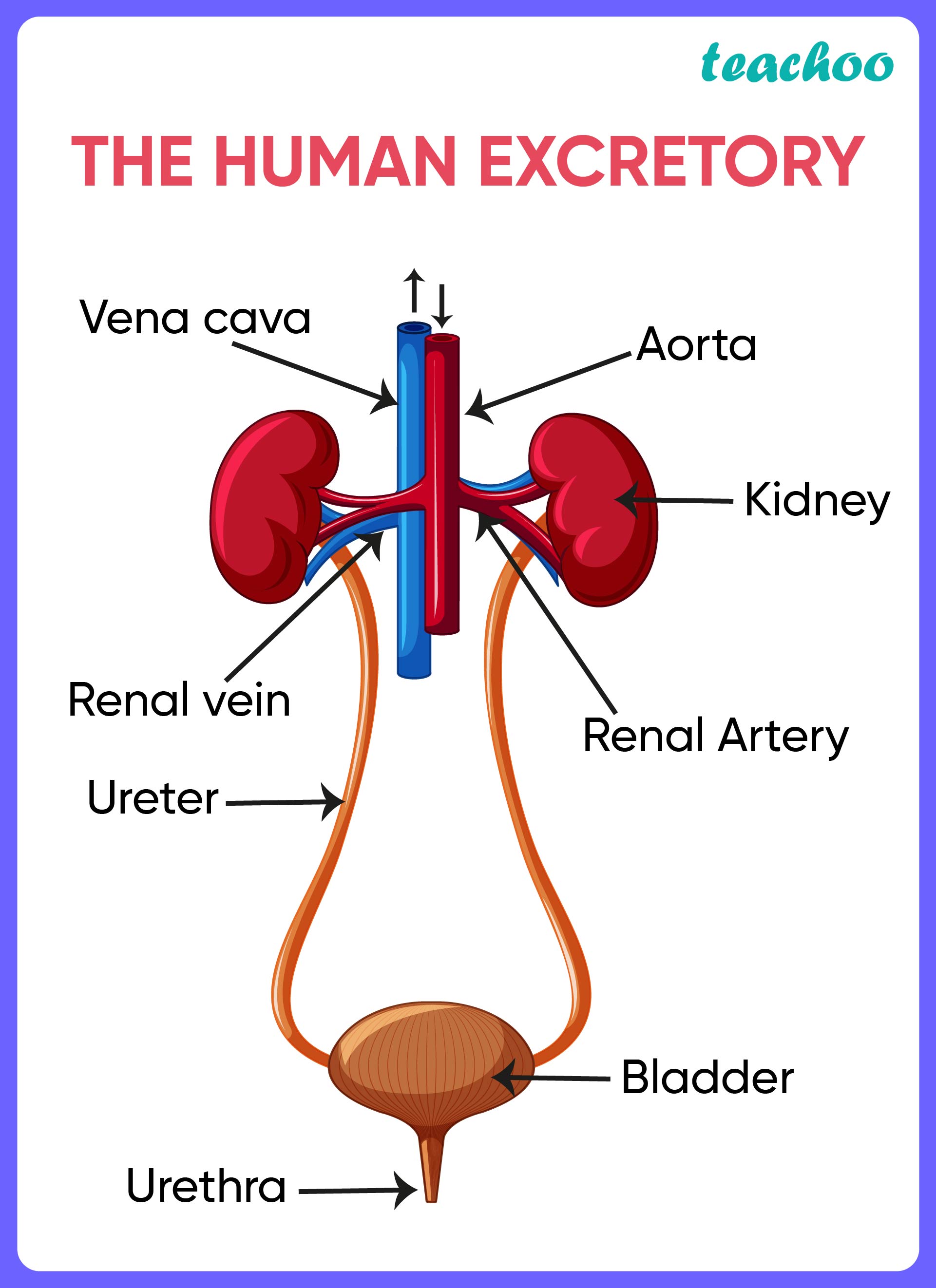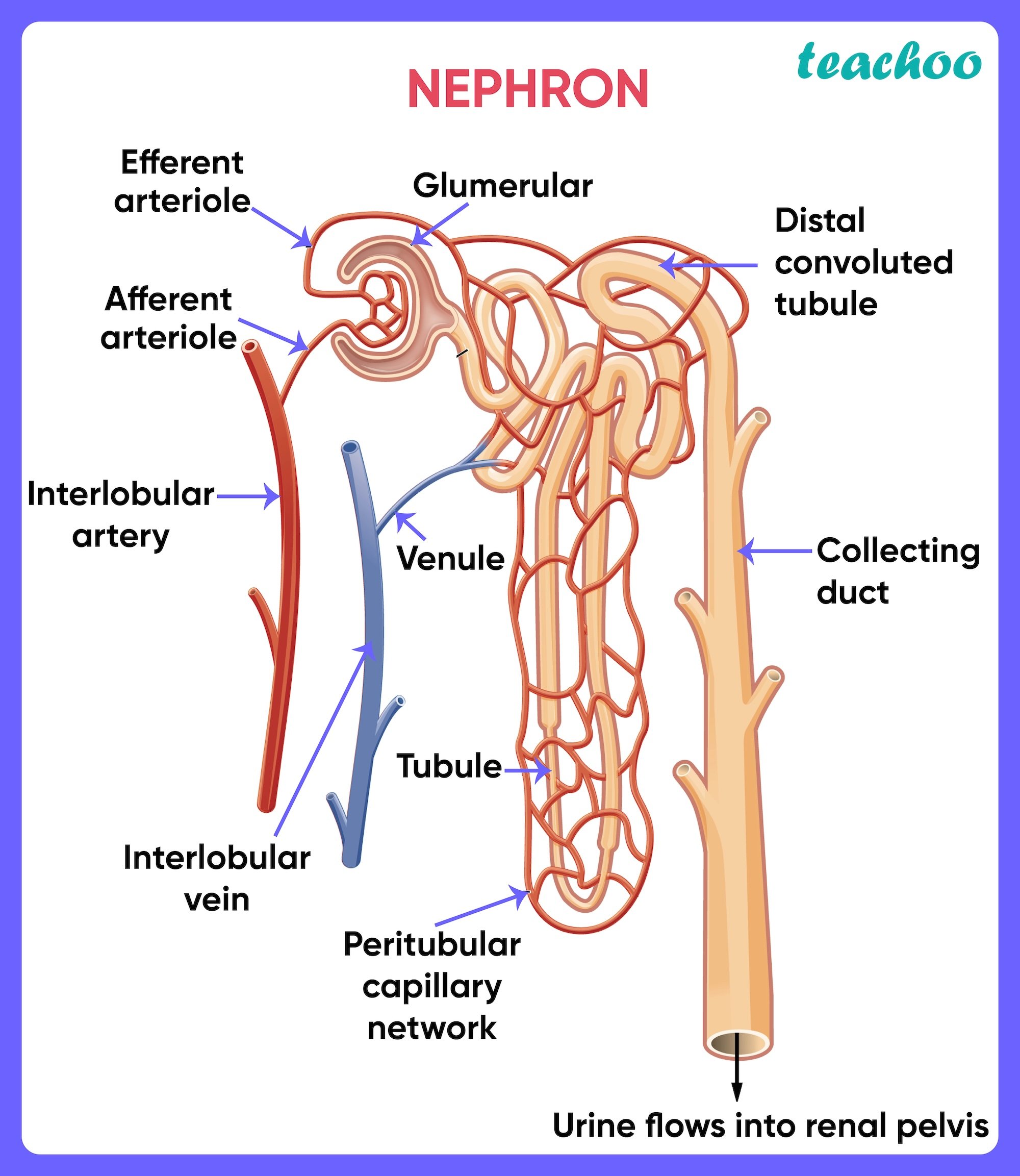
- Organisms carry out biochemical reactions to produce energy.
- These biochemical reactions taking place in the body may produce toxic wastes, which if accumulated may harm the organism.
- Thus, the process of removal of toxic wastes from the body is important. This removal is called Excretion .
The biological process by which the harmful wastes containing nitrogen are removed from the body is called excretion .
Major waste products produced in the Human body:
(1) Carbon Dioxide:
Produced as a waste by the oxidation of food during respiration.
It is removed by lungs .
(2) Urea:
It is produced as a waste by the decomposition of unused proteins in the liver .
It is removed by the kidneys .
Removal of these wastes is important because their accumulation in the body is poisonous and can harm us.
Parts of human excretory system :

-
Kidneys:
These are bean-shaped filtration organs , which remove urea, other waste salts and excess water from the blood in the form of urine (yellow liquid waste).
- Humans have 2 kidneys.
- Each kidney is made up of a large number of excretory units called nephrons .
- Nephrons have a cup shaped bowman's capsule at the upper end. The lower end of the nephron is a tubule.
Thus,
Nephron = Bowman's capsule + Tubule
- One end of the tubule is connected to the bowman’s capsule and the other to the urine collecting duct of the kidney.
- Bowman's capsule has a number of small blood capillaries called glomerulus .
- The glomerulus comes from the renal artery bringing blood containing waste and the other connects to the renal vein through the nephron tubule .
- The renal vein carries clean blood .
-
Ureters:
These are two tubes which carry urine from each kidney , and open into the urinary bladder.
-
Urinary bladder:
A stretchable bag which stores urine until the brain signals to release it.
-
Urethra:
Urine is passed out from the body through the urethra .
Process of Excretion in Humans :

- The function of glomerulus is to filter the blood passing through it.
- It lets substances like glucose, amino acids, salts, water and urea pass into the bowman's capsule and from there into the tubule .
- In the tubule, all useful substances get reabsorbed whereas harmful substances (urea, unwanted salts, excess water ) remain in the tubule.
- The tubule of the nephron then carries these wastes as urine into the collecting ducts of the kidney from where it is taken into the bladder via the ureters.
- This waste is finally removed through the urethra .
